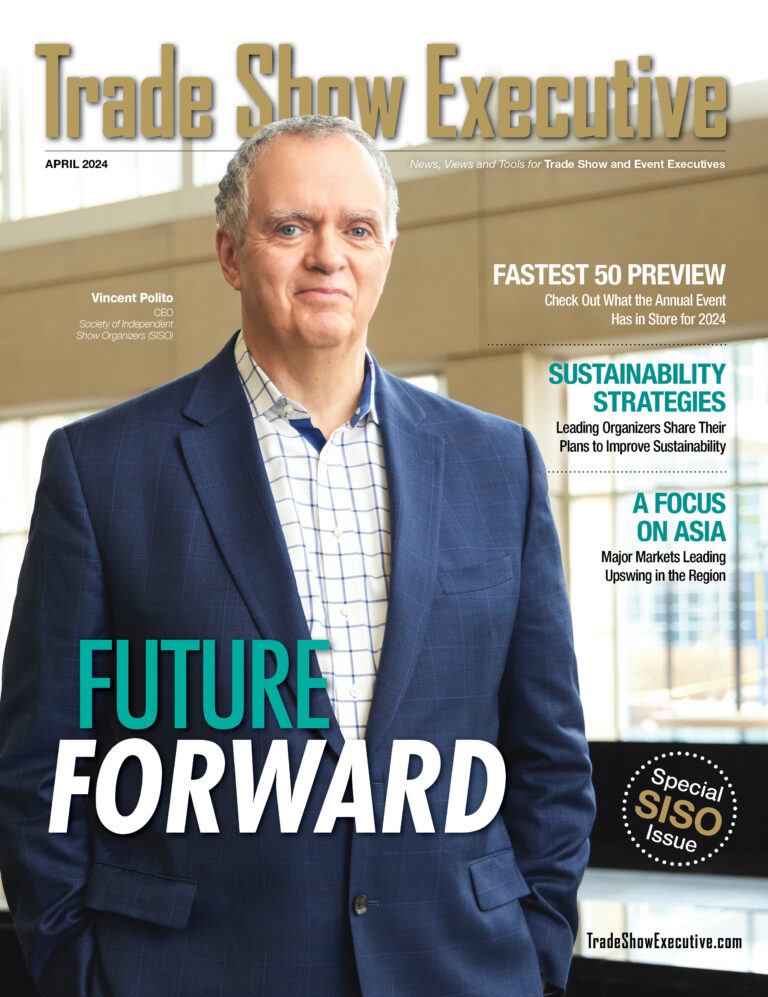Washington, DC – The Convention Industry Council (CIC) formally endorsed guidelines on meetings and incentive travel for companies receiving Federal financial assistance.
The guidelines are for executives who find themselves under fire for traveling to business meetings, conferences and other events that for years were considered prudent and routine but are now being labeled by the press, public and politicians as unnecessary and overly extravagant junkets.
“We support the recently-developed Guidelines for Meetings, Events and Incentive Travel for entities receiving government assistance and urge America’s elected leaders to ensure that their actions do not impede the legitimate critical meetings and events necessary to support U.S. corporations’ and associations’ business missions,” the CIC said in a statement.
The criticism of executive travel expenses and salary packages has been focused on companies receiving emergency financial assistance from Washington. There is also concern that public perceptions will put a damper on travel by other companies at a time when the economic downturn is already forcing them to cancel their own business meetings and cut back on travel to trade shows and conferences.
The guidelines project was spearheaded by the U.S. Travel Association in partnership with a coalition of industry organizations including the International Association of Exhibitions and Events (IAEE) and the Professional Convention Management Association (PCMA).
The CIC’s 34 member associations represent more than 103,500 individuals and 19,500 organizations involved in the meetings, conventions and exhibitions industry including IAEE; PCMA; the Center for Exhibition Industry Research (CEIR); the Exhibition Services and Contractors Association (ESCA); the International Association of Assembly Managers (IAAM); and the American Society of Association Executives (ASAE) and The Center for Association Leadership.
The CIC said it endorsed the guidelines on February 17 because conventions, trade shows and other business events are critical to the performance of individual companies and the entire U.S. economy.
Exhibitions Generate Sales
“Exhibitions provide a wealth of industry information and contacts under one roof and support the sales efforts critical to driving revenue to companies already hurting in the current economy,” the statement said. “Limiting these events would curtail the hundreds of millions of dollars worth of business transacted. These events are supported by thousands of U.S. corporations that value the opportunity to do business, engage in education and create new relationships for their success.”
The Educational Aspect
The CIC also pointed out that conferences and meetings offer training and professional education, such as Continuing Education Units and Continuing Medical Education credits that are required for various licenses. “This education is critical to keeping America’s workforce at the top of its game in a competitive global marketplace,” the statement said.
The Economics of the Event Business
An equally important impact of business travel, the CIC said, is the economic benefit that comes in the form of jobs, tax revenues and direct spending in host cities. “Cutting back on travel kills jobs at a time when job preservation and creation is critical,” the statement said.
Reach Karen Kotowski, chief operating officer, at (571) 527-3116 or kkotowski@conventionindustry.org
—————————————-
Model Board Policy for Approval of Meetings, Events and Incentive/Recognition Travel
1. General policy statement: The CEO shall be responsible for implementing adequate controls to assure that meetings, events and incentive/recognition travel organized by the company serve legitimate business purposes and are cost-justified.
2. All proposed meetings, events and incentive/recognition travel organized by the company must serve one or more specified legitimate business purposes. Each proposed meeting, event or incentive/recognition travel with a cost exceeding $75,000 must be supported by a written business case identifying a specific business purpose.
3. Total annual expenses for meetings, events and incentive/recognition travel shall not exceed 15% of the company’s total sales and marketing spend.
4. The amount spent for an employee performance incentive/recognition event shall not exceed 2% of the total compensation of eligible participants or 10% of total award earners’ compensation.
5. The process for approving meetings, events and incentive/recognition travel, and the procedures for assuring adherence to this policy, will be subject to independent audit to confirm policy adherence.
6. At least 90% of incentive program attendees shall be other than senior executives from the host organization.
7. Performance incentives shall not promote excessive or unnecessary risk-taking or manipulation of financial results.
8. All internal meetings or events attended only by senior executives and/or board members shall be devoted to specific business purposes, and participating senior executives shall be responsible for any expenses incurred for non-business related activities.
9. The CEO of the company shall certify to the board that the policies are being followed and are sufficient to provide reasonable assurance that the company’s expenditure for such purposes are not excessive.
10. These policies shall be subject to modification only with board approval stating the specific business rationale for the change in policy.
Examples of Legitimate Business Purposes for Meetings, Events, Incentive/Recognition Travel
• Trade shows and similar events that bring prospective buyers and sellers together.
• Effective product launches to educate sales force, channel partners and customers.
• Sales conferences and employee meetings to align vision, strategy and tactics.
• Training and staff development meetings.
• Employee recognition programs to motivate and reward employees for achievement and productivity.
• Professional conferences that provide networking, education and best-practice sharing.
• Performance incentives with clear rule structures that are designed to motivate and reward high performers for exceeding established goals that generate incremental revenue growth for their respective organizations and that are beyond the investment in the program.
• User conferences for customers and product development events for research and development purposes.
• Corporate-sponsored events that further charitable purposes.
• Strategic, business and financial planning and review meetings.
• Employee meetings as a result of company mergers or acquisitions for the purpose of alignment of products, brands and cultures.











